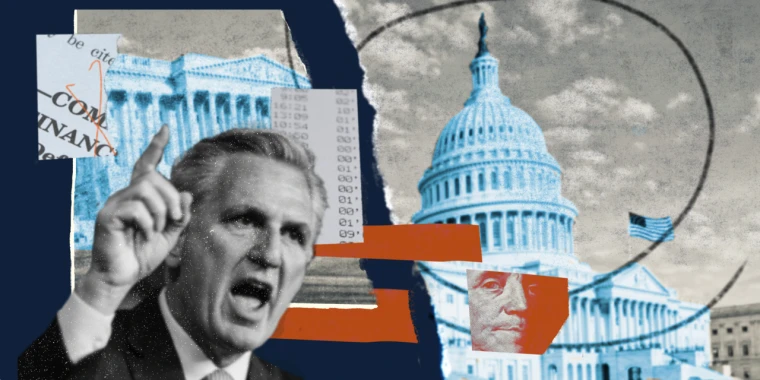The government shutdown that is scheduled to happen on Sunday at 12:01 a.m. ET is still a possibility, and it becomes less and less likely that Congress will be able to find a solution. The main findings and ramifications of the possible government shutdown are outlined below:
1. Deadlock in Congress: Despite the fact that Congress is in session, not much has been done to close the divide between the two parties. The House of Representatives’ conservative members’ strong demand for big expenditure cutbacks is a major source of controversy. The Democratic-controlled Senate is unlikely to approve these changes, though. Speaker Kevin McCarthy’s leadership status is also under jeopardy due to the ensuing political impasse.
2. Senate’s Proposal: The Senate has proposed extending government funding through November 17 in order to resolve the budget impasse. This proposal also calls for cash from FEMA and assistance to Ukraine. But this proposal’s future is still up in the air because it depends on whether House Republicans would support it.
3. Biden’s Call for Action: President Joe Biden has stated that he does not think there will be a government shutdown. In order to prevent a crisis, he has urged House Republicans to carry out their duty and provide funding for the government. Biden’s position shows that he is dedicated to keeping the government’s core operations running.
4. Rejection of the Meeting: In an effort to settle the budget impasse, Speaker McCarthy has proposed that a meeting with President Biden be crucial. But this request for a meeting has been turned down by the White House. The White House’s justification is that the Republicans are now solely responsible for preventing a shutdown because of Speaker McCarthy’s prior involvement in sabotaging a budget agreement.
5. Effect on Federal Workers: Should there be government shutdown, federal employees and military personnel will be severely impacted. A considerable number of these people would face postponements or momentary salary loss, potentially upsetting their financial equilibrium. Workers deemed essential, including those employed by the Transportation Security Administration (TSA), might have to keep working without getting paid right away. However, the disbursement of Social Security benefits would remain uninterrupted.
The government shutdown deadline is drawing near, and there is still reason to be concerned about the possibility of a government shutdown. The core causes of this crisis are political divides and unsolved budgetary concerns, which could endanger the efficient operation of federal institutions and services. Although the Senate has proposed extending government funding, it is unclear if Republicans in the House will support it. The result will probably depend on Congress’s capacity to come to a consensus and approve a budget that ends the government shutdown. Federal workers and the general public are experiencing worry as a result of the situation’s unpredictability.
To avoid a government shutdown, which would have severe repercussions for people, companies, and the economy as a whole, both political parties will need to compromise and negotiate seriously as the deadline draws near. As the crucial Sunday deadline approaches, the entire country is keeping a careful eye on everything.
Follow us on social media: Instagram, Threads & Twitter X @nya360_ YouTube & Facebook @nya360.





